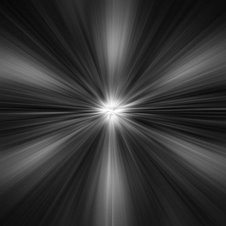The Purusa-sukta is found in all the four Vedas and is therefore mentioned in the Pancaratras and the Puranas as the most important Vedic hymn (along with the Gayatri mantra).
Purusha sukta is hymn 10.90 of the Rigveda, dedicated to Purusha, the "cosmic man". It has 16 verses. It is the only Rigvedic hymn dedicated to Purusha, and thus, even though appearing in a late book of the Rigveda, the oldest attestation of the Purusha myth.
The Purusha Suktam is one of the Pancha Suktams of the Sri Vaishnava sampradaya or tradition. The other four are the Narayana Suktam, Sri Suktam, Bhu Suktam, and the Nila Suktam.
The Purusha Suktam is seen earliest in the Rig Veda, as the 90th Suktam of its 10th mandalam, with 16 mantrams. Later, it is seen in the Vajasaneyi Samhita of the Shukla Yajur Vedam, the Taittriya Aranyaka of the Krishna Yajur Vedam, the Sama Veda, and the Atharvana Veda, with some modifications and redactions.
In South India, the Purusha Suktam, Vishnu Suktam, Sri Suktam, and Narayana Suktam are generally chanted together in paarayanam.
Since the Purusha Suktam is seen in all Vedas, it is cited as the essence of all Srutis by Veda Vyasa in the Mahabharata. Saunaka, Apastamba, and Bodhayana have also written concerning the use of the Purusha Suktam.
The Purusha in the title of the Purusha Sukta refers to the Parama Purusha, Purushottama, Narayana, in his form as the ViraaT Purusha. He was the source of all creation. It describes this form of his, as having countless heads, eyes, legs, manifested everywhere, and beyond the scope of any limited method of comprehension. All creation is but a fourth part of him. The rest is unmanifested.
Purusha as Brahma remained inactive, and Aniruddha Narayana, one of the four aspects of Narayana in the first tier at the base of the Vishaaka Yoopa, asked him ``Why do you do nothing?'' ``Because of not knowing,'' Brahma replied. ``Perform a yajna. Your senses, the devas, shall be the ritviks. Your body shall be the havis. Your heart, the altar. And I shall be he who enjoys the havis -- the offering. From your body sacrificed, shall you create bodies for all living creatures, as you have done in kalpas before this.'' Thus says the sAkalya brAmhaNA.
This yajna was called ``sarvahut'', the offering of all. The act of creation itself grew out of yajna, the rite of sacrifice. Who was worshipped at this sacrifice? It was the Purusha. Who performed it? Brahma, the creative aspect of the Purusha. Who were the ritvik priests ? The devas, who are the Purusha's senses. Who was tied as the beast of the sacrifice? Brahma, again. What was barhis, the altar of the sacrifice? All of nature. Who was the fire? The Purusha's heart. What was sacrificed? Again, the Purusha himself, his great body that contained all of creation.
In a way, this is a message of love, that the Purusha would consume himself in the fire of creation, to create all the worlds. From this sacrifice did all of creation emanate. This is central to the message of the Purusha Sukta.
Nonetheless, the Purusha Sukta gives us the essence of the philosophy of Vedanta, the Vedic tradition, as well as the Bhagavad-gita and Bhagavat Purana. It incorporates the principles of meditation (upasana), knowledge (jnana), devotion (bhakti), and rituals and duties (dharma and karma). This is why it is highly regarded and extensively used today as much as thousands of years ago.
Suggested Further reading:
http://www.hinduweb.org/home/dharma_and_philosophy/vvh/vvhstl.html
Thursday, November 09, 2006
Subscribe to:
Post Comments (Atom)



1 comment:
ooh another blog from you. its getting difficult to keep track dude.
Anyways good job. lots of gyan on purusha suktha. My understanding has been that early Vedic principles and even Buddhist principles have no reference to the concept of God. But I could be miserably wrong. Buddhism for sure is only claimed as a righteous path to lead life rather than a way to unite with God as most other religions claim.
So just wondering when exactly did this interpretation of "Purusha" as Narayana happen first?
Post a Comment